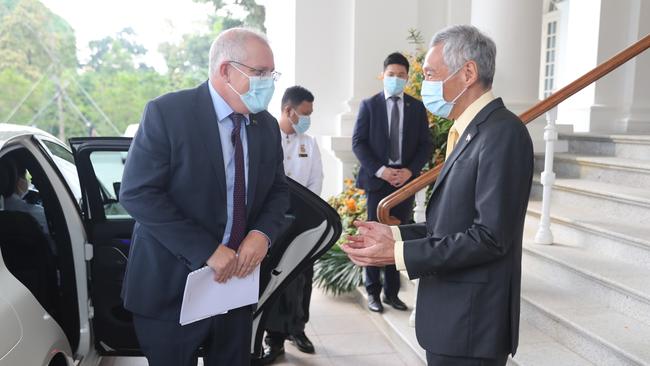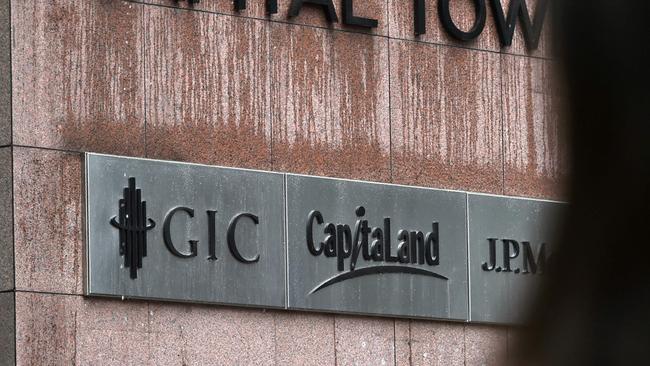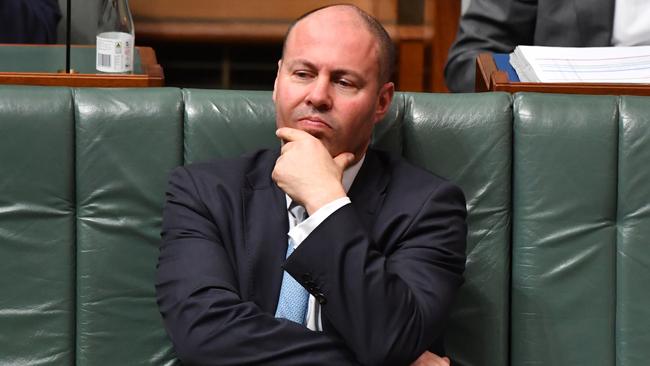
As a result 13,500 ordinary Australian retail investors in a $2.5bn unlisted fund may be forced to sell at a price substantially lower than the Singaporeans have offered the major equity holder.
And the Singaporeans have devised a way to force their “low” bid on unsuspecting Australians. They are taking Australia back 30 or 40 years to the days when the laws of the jungle governed takeovers.
The Singaporeans have not broken our laws but they have certainly trashed our takeover investor protection conventions.
I do not write about individual stocks where I have a direct equity stake. Our family has done very well from our investment in the Australian Unity Healthcare fund. However I am breaking my rule because the activities of the Singaporeans have become national issues that would otherwise have gone under the radar.
I believe investors in unlisted trusts need the protection of our takeover conventions. A foreign government entity should not be allowed to dismantle those conventions in their scramble to control a large number of key Australian hospitals and medical facilities that are owned by the fund.
Longer term, the financial centre of Asia is swinging from Hong Kong to Singapore and it was good to see Prime Minister Scott Morrison on his way to the G7 call in to see Singapore’s Prime Minister Lee Hsien Loong.

But if our two countries are to have closer relations then Australians operating in Singapore need to abide by both the law and the conventions of Singapore. Similarly Singaporeans - and especially their government controlled state enterprises - must do the same here.
I will set out below what I believe Josh Frydenberg and ASIC need to do.
Not surprisingly, the story starts with two old-time takeover operators Peter Scanlon (the young Heinz marketing manager who joined John Elliott in the 1980s) and Ross Burney (a former colleague of Ron Brierley) who are behind the successful Hume investment fund. Hume bought or took control of around 16 per cent of the Australian Unity Healthcare fund, which has earned around 12 per cent a year since its inception and has had a brilliant 2020-21.
Hume often looks for quick profits. Nothing in this article is critical of them---they are legitimately and lawfully pursuing their aims.
Last December Hume did a secret deal with the Singapore government-owned GIC and its 30 per cent partner, the giant Canadian-owned Australian hospital owner NorthWest.
We don’t know the exact details of the December 2020 deal but it metamorphized into a Singaporean undertaking whereby Hume would receive a minimum total payment of around $2.90 a wholesale unit (and is likely to get $3.05) so I will speculate that similar arrangements were a part of the original secret December deal.
About three months later the Singaporeans lodged a $2.20 wholesale unit bid using the Canadian name NorthWest on unsuspecting Australian Unity Healthcare unit holders - a huge discount to the apparent December deal and their later revised arrangement.

In my view, it was the first step in a carefully orchestrated plan to chisel the stock out of Australians at “low” prices when compared to their base deal. Three subsequent bids were made - all well below the Hume price. The bid documents were over 100 pages. And then came directors’ rejections, causing mountains of confusing paper. The paper avalanche was followed by phone calls from a massive phone team assembled by the Singaporeans.
Unsuspecting unitholders were not told of the of the Singaporeans’ Hume deals.
On the third bid ($2.55) Australian Unity directors placed stock at $2.60 with Dexus and then offered unitholders an entitlement to take up stock at around $2,30. The Singaporeans were ready.
They consummated their Hume deal as to 5 per cent at $2.91 and then lifted their overall public bid to $2.70, which gave Hume over $3.05, in accordance with their deals.
But it gets worse for Australians. The Singaporeans have called a scheme of arrangement meeting which will be held on July 19. The Singaporeans are demanding the Hume stock be allowed to vote (but not the Dexus stock) even though passing that motion will give Hume a much bigger price than other unit holders. They are clearly conflicted but that doesn’t count when the law of the jungle is being legally applied.
Given the confusion among the 13,500 Australian retail unit holders the scheme is likely to be passed because it only requires a 75 per cent majority of those who vote. Australians will then be forced to sell to the Singaporeans at $2.70 while Hume pockets $3.05.

What needs to happen?
* The Singaporeans are acting legally and exploiting a loophole in the takeover act, so the courts are having difficulty dealing with the issues. Accordingly Treasurer Josh Frydenberg via ASIC needs to discover exactly what was involved in the so-called “option” the Singaporeans did with Hume back in December.
Later disclosed deals indicate it was really the first instalment of the takeover price. This deal should have been fully disclosed and told to Australians at that time when the bid was only $2.20
* If as I suspect the December deal offered Hume a huge price rise if Australians sold at $2.20 then the full force of ASIC should be exercised.
* If I am right about that December deal then the so called “independent” report by Grant Thornton should be corrected and a letter apology sent by the accounting firm to unit holders.
* The prime minister of Singapore should be told of Australia’s takeover conventions.
Readers will note I have not discussed the actual value of units in the Australian Unity Healthcare fund.. To some extent that depends on the investment policies and motivations of the holders.
Hume clearly believe that between $2.91 and $3. 05 represents a “fair price”.
For long-term holders $3.05 may be seen as too low. That’s always the nature of these situations.
But what is simply appalling is that Australians risk being forced to sell at $2.70.





A Singapore government state-owned enterprise has discovered a loophole in Australia’s takeover investor protection laws and has decided to exploit it to the full.